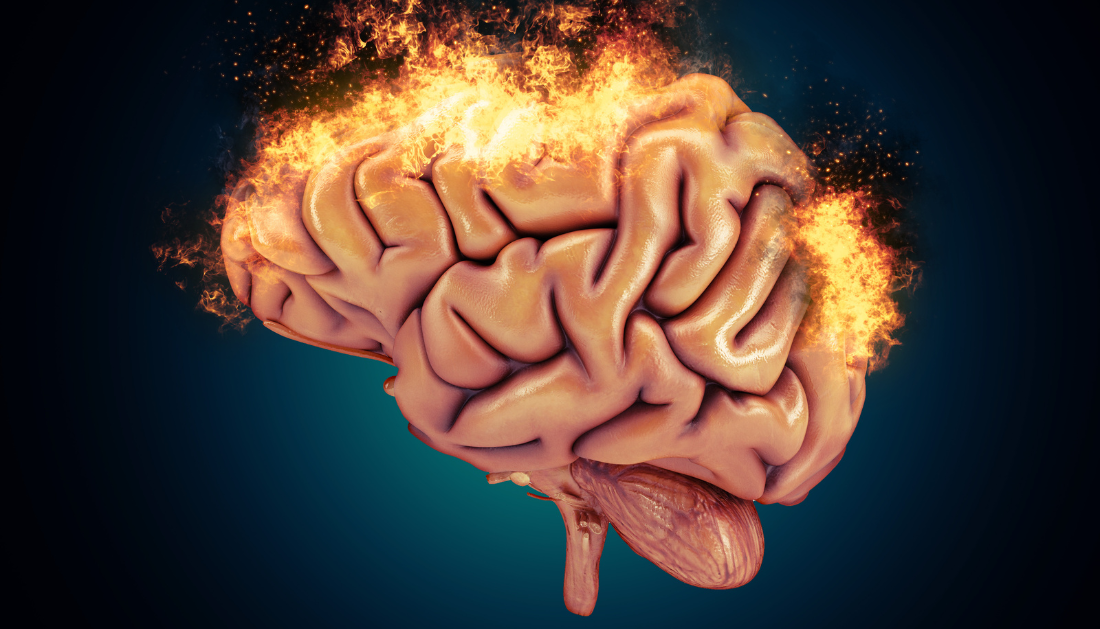

After treating a middle-aged man who was found unconscious in his hotel room after sniffing the synthetic opioid fentanyl, medical professionals warn in the journal BMJ Case Reports that inhaling the substance could result in potentially irreparable brain damage (toxic leukoencephalopathy).
Leukoencephalopathy is the term used to describe inflammation and damage to the brain’s white matter, which is the network of nerve fibers that facilitates communication and information exchange across various gray matter regions.
A sudden or chronic neurological condition known as “chasing the dragon” caused by heroin inhalation has been documented as toxic leukoencephalopathy. However, the report’s authors claim that this is the first case of fentanyl that has been demonstrated.
Neurological and behavioral abnormalities, ranging from mild disorientation to stupor, coma, and death, are the most evident indications and symptoms of the illness.
According to the report’s authors, the prognosis for those impacted typically depends on the severity of white matter injury: While some people will totally heal, others will only worsen over time.
In this instance, the man had no known medical history and had been unconscious in his hotel room for an undisclosed amount of time when unknown broken pills and a white substance were discovered on a nearby table.
He could not obey orders or respond to queries when he first arrived at the hospital. His arms remained unaffected by pain stimuli, but his legs did.
Cerebellar damage and white matter enlargement were discovered during a brain scan. The area of the brain in charge of balance and gait is called the cerebellum. He did not test positive for epilepsy.
A drug check came out negative, but a second urine test revealed a very high fentanyl level, leading to the diagnosis of toxic leukoencephalopathy caused by inhaling fentanyl.
After eighteen days, he was still bedridden and in need of tube feeding. He was prescribed several medications to treat pneumonia, pain and agitation, kidney damage, cognitive decline, suspected opioid withdrawal, and urine incontinence.
He was sent to a rehabilitation center after 26 days and, with the help of outpatient physiotherapy and occupational therapy, was able to return home after an additional month.
He was back to work full-time less than a year after his hospital stay, having fully healed.
Regarding the event, he characterizes his recovery as “miraculous,” adding, “Early on it was looking like I would need 24-hour care after being discharged, but I focused and worked hard in my therapy session and was determined not to leave the hospital only to be checked into a group facility for ongoing care.”
He says, “I have regrets often about what I did to myself, my wife, and my family,” thanking all the medical staff for saving his life and allowing him to resume his previous way of living.
The authors of the report concluded, “This case illustrates the need for inclusion of fentanyl in routine urine drug screens for earlier identification and appropriate management.”
For more information: Clinical and neuroradiographic features of fentanyl inhalation-induced leukoencephalopathy, BMJ Case Reports, https://doi.org/10.1136/bcr-2023-258395
more recommended stories
 CTNNB1 Syndrome Study Explores Beta-Catenin Defects
CTNNB1 Syndrome Study Explores Beta-Catenin DefectsKey Takeaways Researchers in Spain are.
 Tuberculosis Breakthrough with Experimental Antibiotics
Tuberculosis Breakthrough with Experimental AntibioticsKey Takeaways Experimental antibiotics disrupt a.
 National Healthy Longevity Trial Receives Federal Support
National Healthy Longevity Trial Receives Federal SupportKey Summary Up to $38 million.
 Red Blood Cells Improve Glucose Tolerance Under Hypoxia
Red Blood Cells Improve Glucose Tolerance Under HypoxiaKey Takeaways for Clinicians Chronic hypoxia.
 Nanoplastics in Brain Tissue and Neurological Risk
Nanoplastics in Brain Tissue and Neurological RiskKey Takeaways for HCPs Nanoplastics are.
 AI Predicts Chronic GVHD Risk After Stem Cell Transplant
AI Predicts Chronic GVHD Risk After Stem Cell TransplantKey Takeaways A new AI-driven tool,.
 Red Meat Consumption Linked to Higher Diabetes Odds
Red Meat Consumption Linked to Higher Diabetes OddsKey Takeaways Higher intake of total,.
 Pediatric Crohn’s Disease Microbial Signature Identified
Pediatric Crohn’s Disease Microbial Signature IdentifiedKey Points at a Glance NYU.
 Nanovaccine Design Boosts Immune Attack on HPV Tumors
Nanovaccine Design Boosts Immune Attack on HPV TumorsKey Highlights Reconfiguring peptide orientation significantly.
 Rising Measles Cases Prompt Vaccination Push in NC
Rising Measles Cases Prompt Vaccination Push in NCKey Highlights 15 confirmed Measles cases.

Leave a Comment